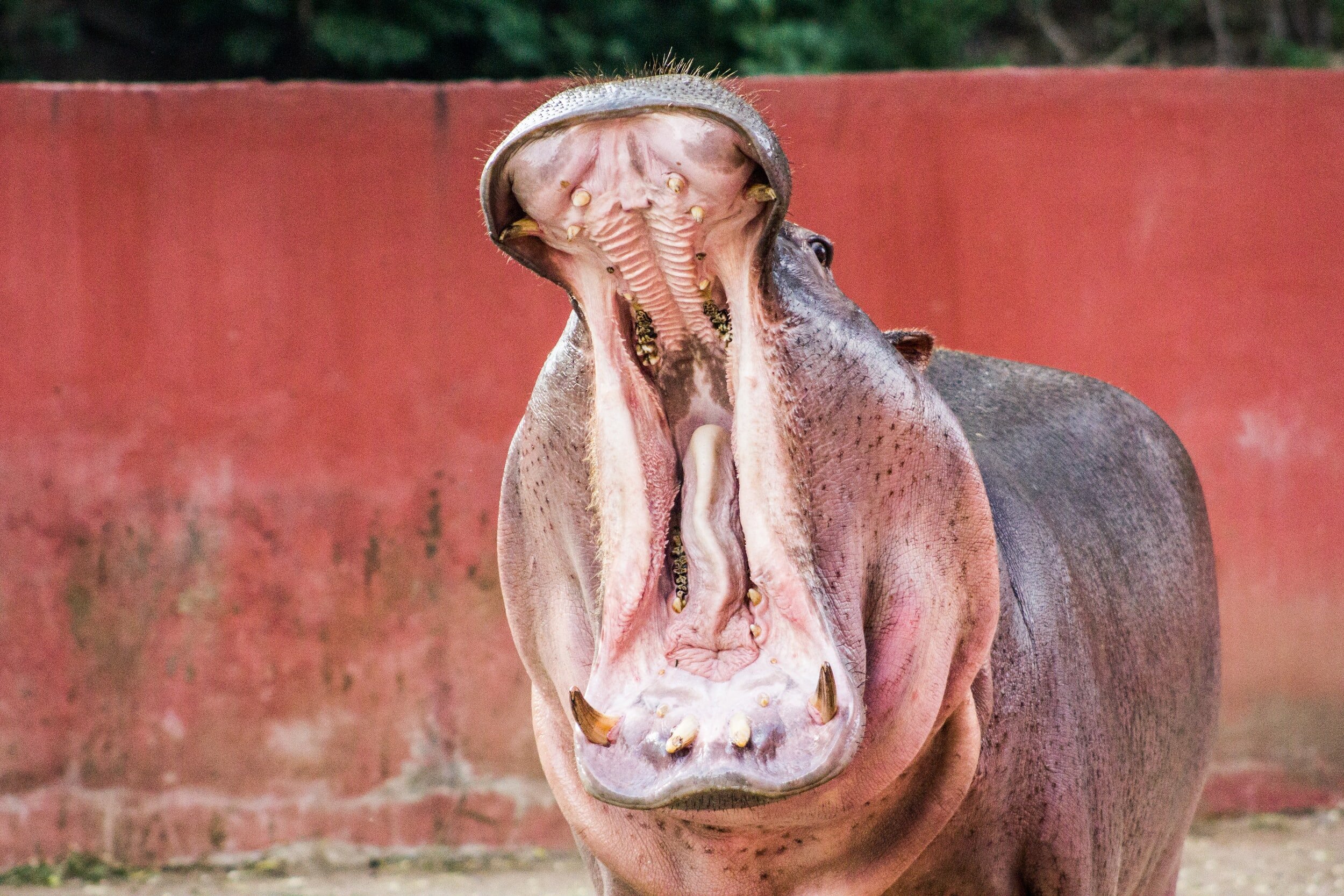Wonder Words Part 1: Unomatopoeia
In this glorious coexistence we call HUMANITY, we’re all connected by the magic of communication.
Our thoughts, emotions, and knowledge can all be handily passed from one person’s mind to the next through the powerful medium of words.
As any good poet, speaker, author, linguist, or reader knows, words can be a thing of beauty.
Some are musical.
Some are profound.
Some are just plain stupid.
This Wonder Words blog series will look at a few of the most peculiar, most fascinating, most extraordinary words in the English language.
And we shall begin our journey with a list of aptly phoneticised words I’ve dubbed Unomatopoeia.
Onomatopoeia vs Unomatopoeia
Chances are, if you’ve studied high-school-level English or higher, your teacher probably mentioned onomatopoeia at some point.
And since this vowel-ridden beast is such a peculiar word, you may have even remembered what it means.
For those who’ve forgotten, or are not yet so fortunate to learn, I’ll explain it to you now.
Onomatopoeia, in its essence, is the process of creating a word that phonetically imitates, resembles, or suggests the sound it dictates.
In simpler terms, it is the written form of a natural or artificial sound.
In case you’re still confused, here are a few examples:
Cheep
Chirp
Pow
Splat
Clink
Clank
Twang
Bang
Boom
Fun, aren’t they?
There are literally hundreds of these nifty little numbers—almost one for every physical sound that exists.
You’ll find them used most blatantly in action comics and in the subtitles of old black-and-white silent films, but onomatopoeia exists just about everywhere.
Right then, as for unomatopoeia. . .
Unomatopoeia is very similar to onomatopoeia, because it is all about the sound a word makes.
But where onomatopoeia imitate real sounds, unomatopoeia are terms that accidentally (or so we must assume) sound like the thing they describe.
Onomatopoeia was specifically created to reflect a real-life sound.
Unomatopoeia are happy coincidences.
Confused? It’ll all make sense soon.
I’ll explain why each word is unomatopoeia as we go along, so you’ll see what I mean straight away.
With hope, you’ll even have thought of a few yourself of your own by the time we’re done.
P.S. unomatopoeia work much better when you say them out loud 😉
1) Explode
We begin this list with a perfect example of unomatopoeia: Explode.
The sound an explosion makes is represented by the onomatopoeic forms ‘Boom’, ‘Kaboom’, and ‘Bang’.
The word Explode literally explodes as you say it.
The eck syllable is unstressed—a ticking sound, if you will—creating a moment of calm.
A thunderous splode immediately follows.
This second syllable demands a hefty stress, an explosion of phonetic brilliance:
eck-SPLODE.
Speaking of thunderous. . .
2) Thunder
Continuing our theme of Words That Go Boom, THUNDER cracks the sky with an undeniable presence the moment it leaves the larynx.
Though technically the stress is on the first syllable, even the ‘duh’ sound packs a punch.
One of my favourite things about this word that, when spoken, satisfyingly resembles the thing for which it was named, is that it becomes more unomatopoeic with each one of its suffixes.
THUNDERHEAD, THUNDERBOLT, THUNDERSTORM and THUNDEROUSLY all share in the perfect phonetical storm, as if it were Zeus himself that invented them.
3) Soft / Hard
This neat little antonymic pairing does precisely what it says on the box.
Soft begins with a gentle ssssss, like shallow waves lapping against a starlit shore.
Next comes a polite, almost startled, ‘oh!’—the pleasantly surprised sound one makes upon discovery of a five-dollar note on the ground.
Finally, we fall upon the cushy cloud of fffft, a soft exhalation of relief as tender as it is welcome.
HARD hits like a truck. There’s just no getting past that domineering R sound.
And what’s waiting around the corner?
Only a big ol’ thudding ‘Dih’.
Even the H, a letter that often gets left off the vocal pallet when placed at the beginning of a word (as in hour, honest, honour, heir...), can’t be dismissed.
These two may be opposites most of the time but you cannot deny they now have at least one thing in common: our good friend unomatopoeia.
4) Sweep
The next two entries on our list are verbs that ask of the vocal cords the very thing they represent.
Sweep begins slowly, sweeping itself out of your mouth letter-by-letter, closing with a subtle but tidy pih.
The two e’s are an utter broomstroke of a sound; brushing the dirt and dust from your mouth and sweeping it all neatly under the rug.
5) Glide
Keeping up?
By now you ought to have the hang of this whole unomatopoeic biz. Perhaps you’ve already thought of a few of your own.
I hope so.
If you’re still a bit confused, fear not. This one is easy.
Just say it.
Glide.
Or if it helps,
gliiiiiiiiiiiiiide.
You could hook a handlebar to that sweetly stressed ‘i’ and ride it into the sunset if you really wanted to.
The vowel sound for this word is almost as smooth as that of, well, smooth.
6) Thick
Here’s a word you can really chew on.
T-H-I-C-K
The entire experience happens inside your mouth. Its sound rolls around the tongue like an extra-chewy marshmallow.
As its name suggests, there is nothing thin about this chunky little adjective—least of all in its pronunciation.
7) Trickle
English is a rather liquid language, and we have plenty of watery onomatopoeia to prove it.
Splish, splash, gurgle, gargle, pitter-patter, and plop to name a few.
One that isn’t technically an onomatopoeic (thus allowing us to claim it as unomatopoeic) is Trickle.
Your loss, high-school English teachers.
Much like a babbling brook, a trickling stream behaves phonetically the same way it does in reality.
The more you say it, the more it trickles. Go on, try it.
Trickle trickle trickle trickle trickle.
Lovely.
8) Pierce
Frankly, it’s astounding that this one isn’t onomatopoeia, because pierce is precisely the sound a thing makes when you pierce it.
Okay, maybe not a lip or nose or a Brosnan.
But anything filled with air—be it a ball, a tire, a lung, an inflatable pool—makes an undeniable pierce sound as your weapon of choice breaks the surface.
9) Whisper
Many of us, myself included, pronounce words beginning with ‘Wh’ as if the h wasn’t even there.
For instance, we would say ‘where’ as if it was phonetically identical to ‘wear’.
If we were to adhere to traditional English pronunciations, however, we would all pronounce ‘Wh’ words as if the h came first.
The etymological origins of many Wh words are spelled this way, as in:
hwǣm (Old English for Whom)
and
hwās (Old English for Whose)
Bearing all this in mind, it is not a stretch to say that the word ‘whisper’ when pronounced hwisper is scarcely voiced at all.
Most of the sounds it makes come from the air in your lungs, passing over your tongue and through your teeth, capped off with a subtle pah sound as it pushes apart your lips.
All this makes for a word that both means and resembles unvoiced speech. Pair this with the fact that people who are whispering often sound like they’re saying “whisperwhisperwhsiper” and you’ve got yourself the perfect unomatopoeia.
10) Trip up / Trip over
My personal favourite on this list, this tidy doublet falls victim to its own verbs.
What’s the difference between tripping up and tripping over?
Well, tripping up is when you have a little stumble, but maintain the better part of your decorum and uprightness.
It’s a bit embarrassing, sure, but no actual harm beyond a possible stubbed toe usually occurs.
The phrase ‘trip up’ shares a similar clumsiness, stumbling at the end with the ip-up.
Alternatively, tripping over is when you fall flat on your face, or in the very least, into a sort of painful push-up.
Like its partner, trip up, trip over does what it is. That is to say, the word over has the phonetic effect of a slow and dramatic fall.
If you really put the stress on it, you may even notice your chin stepping up and over an invisible hurdle just to get the syllables out.
That’s it—there’s my ten. Have you thought of any yet?
Let me know in the comments.











